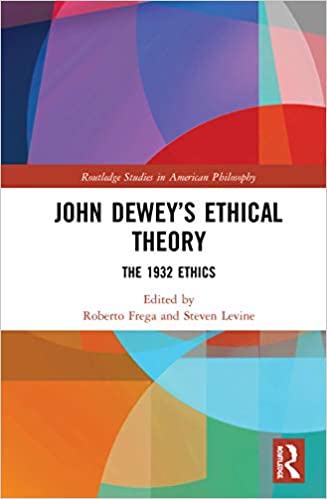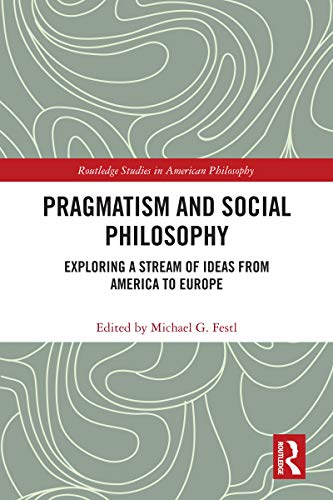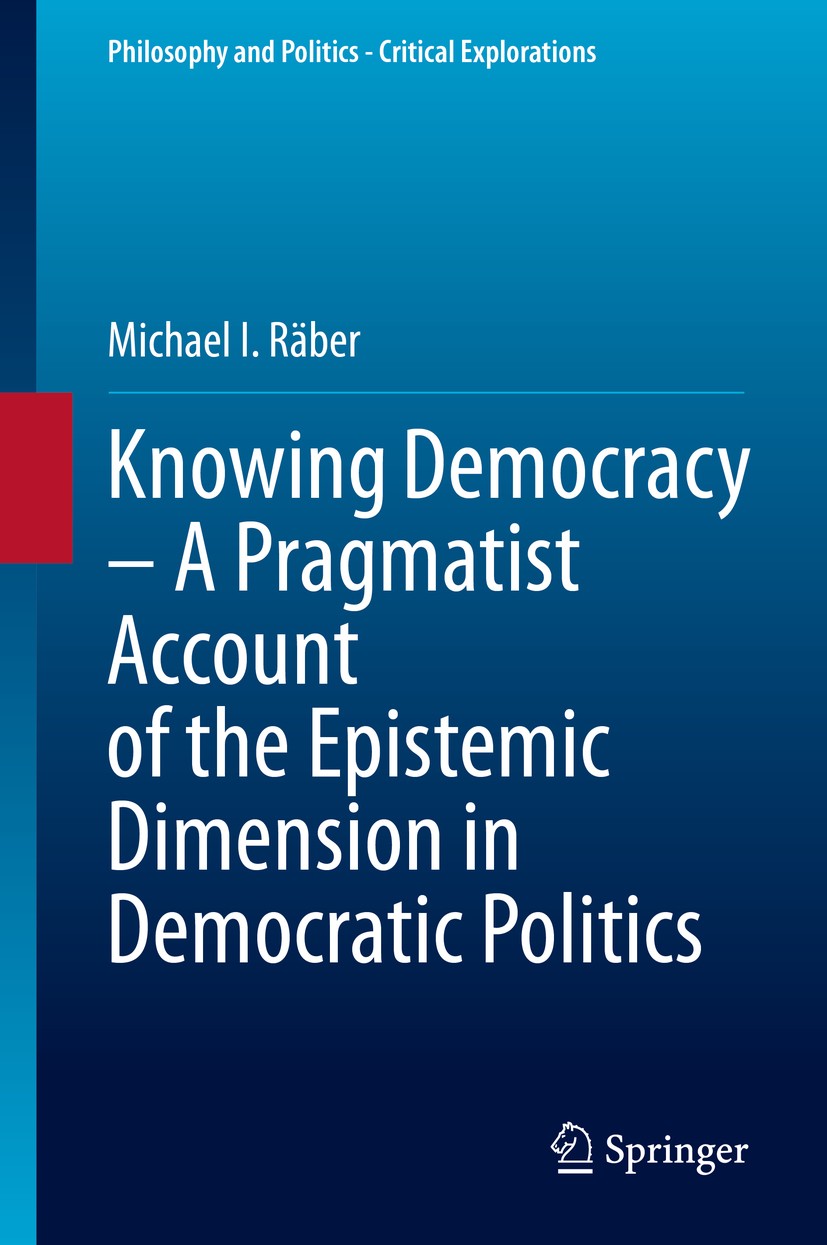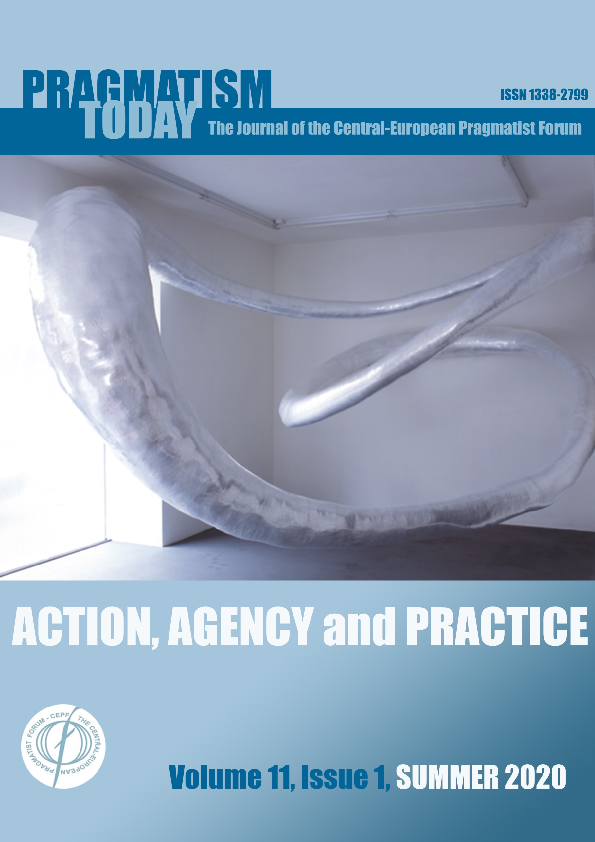 | This book provides a wide-ranging, systematic, and comprehensive approach to the moral philosophy of John Dewey, one of the most important philosophers of the 20th century. It does so by focusing on his greatest achievement in this field: the Ethics he jointly published with James Hayden Tufts in 1908 and then republished in a heavily revised version in 1932. The essays in this volume are divided into two distinct parts. The first features essays that provide a running commentary on the chapters of the 1932 Ethics written by Dewey. Each chapter is introduced, situated within a historical perspective, and then its main achievements are highlighted and discussed. The second part of the book interprets the Ethics and demonstrates its contemporary relevance and vitality. The essays in this part situate the Ethics in the broader interpretive frameworks of Dewey’s philosophy, American pragmatism, and 20th-century moral theory at large. Taken together, these essays show that, far from being a mere survey of moral theories, the 1932 Ethics presents the theoretical highpoint in Dewey’s thinking about moral philosophy. This book features contributions by some of the most influential Dewey scholars from North America and Europe. It will be of keen interest to scholars and students of American pragmatism, ethics and moral philosophy, and the history of 20th-century philosophy. |
 | This book explores the role that American pragmatism played in the development of social philosophy in 20th-century Europe. The essays in the first part of the book show how the ideas of Peirce, James, and Dewey influenced the traditions of European philosophy, especially existentialism and the Frankfurt School of Critical Theory, that emerged in the 20th century. The second part of the volume deals with current challenges in social philosophy. The essays here demonstrate how discussions of two core issues in social philosophy—the conception of social conflict and the public—can be enriched with pragmatist resources. In featuring both historical and conceptual perspectives, these essays provide a full picture of pragmatism’s role in the development of Continental social philosophy. Pragmatism and Social Philosophy will be of interest to scholars and advanced students working on American philosophy, social philosophy, and Continental philosophy. |
Gunnarson, L. (2020). Vernunft und Temperament. Eine Philosophie der Philosophie. Paderborn: Mentis.
 | Dieses Buch hat nicht die Form einer Monographie. Es ist ein philosophisches und zugleich literarisches Buch: Die fiktiven Philosophen Bill Headstrong und Wilhelm Kornblum ringen leidenschaftlich um ihren Lieblingsautor William James (1842-1910) und die eigentliche Bedeutung der Philosophie. Ihre Arbeit an einem gemeinsamen Buch fußt auf bestimmten philosophischen Grundsätzen: So gehen beide davon aus, dass nur ein wahrer Mensch auch ein guter Philosoph sein kann, und dass philosophische Wahrheiten sich nur durch den ganzen Menschen samt seinen emotionalen Fähigkeiten erkennen lassen. Im Laufe ihrer Zusammenarbeit müssen Headstrong und Kornblum allerdings feststellen, wie verschieden sie diese Grundsätze auffassen. Letztlich wird ihr Buch in der ursprünglich geplanten Form nie erscheinen. Stattdessen präsentiert Vernunft und Temperament die von beiden Philosophen jeweils beigesteuerten Kapitel, in denen wesentliche existentielle Fragen behandelt werden, zusammen mit ihrem kontrovers geführten Briefwechsel. Interview mit dem Autor Rezension |
Honnacker, A. & Schlette, M. (Eds.) (2021). Democracy as a Form of Life, European Journal of Pragmatism and American Philosophy 12 (2).
 | How can we justify democracy’s trust in the political judgments of ordinary people? In Knowing Democracy, Michael Räber situates this question between two dominant alternative paradigms of thinking about the reflective qualities of democratic life: on the one hand, recent epistemic theories of democracy, which are based on the assumption that political participation promotes truth, and, on the other hand, theories of political judgment that are indebted to Hannah Arendt’s aesthetic conception of political judgment. By foregrounding the concept of political judgment in democracies, the book shows that a democratic theory of political judgments based on John Dewey’s pragmatism can navigate the shortcomings of both these paradigms. While epistemic theories are overly and narrowly rationalistic and Arendtian theories are overly aesthetic, the neo-Deweyan conception of political judgment proposed in this book suggests a third path that combines the rationalist and the aesthetic elements of political conduct in a way that goes beyond a merely epistemic or a merely aesthetic conception of political judgment in democracy. The justification for democracy’s trust in ordinary people’s political judgments, Räber argues, resides in an egalitarian conception of democratic inquiry that blends the epistemic and the aesthetic aspects of the making of political judgments. By offering a rigorous scholarly analysis of the epistemic and aesthetic foundations of democracy from a pragmatist perspective, Knowing Democracy contributes to the current debates in political epistemology and aesthetics and politics, both of which ask about the appropriate reflective and experiential circumstances of democratic politics. The book brings together for the first time debates on epistemic democracy, aesthetic judgment and those on pragmatist social epistemology, and establishes an original pragmatist conception of epistemic democracy. Review (by M. Festl) |
Viola, T. (2020). Peirce on the Uses of History. The Legacy of a Realist. Berlin: De Gruyter.
 | The present book is the first to undertake a systematic study of Peirce’s conception of historical knowledge and of its value for philosophy. It does so by both reconstructing in detail Peirce’s arguments and giving a detailed account of the many ways in which history becomes an object of explicit reflection in his writings. |
Articles
Braun, C. (2020): Dewey, Ebbinghaus, and the Frankfurt School: A Controversy over Kant neither Fought Out nor Exhausted. In: Festl, M. (Ed.): Pragmatism and Social Philosophy, London: Routledge.
Briese, J. (2020): Diagramming discursive intentionality – A cognitive-pragmatic model of intentional verbs. In: Cognitive Semiotics 13(2). S. 1-22. https://doi.org/10.1515/cogsem-2020-2031
Cojocaru, M. (2020): Turn Anger into Passionate Disagreement?, European Journal of Pragmatism and American Philosophy 12(2), 74-100.
Frega, R. (2020): What Exactly is the Place of Virtue in Dewey’s Ethics?. In: Frega, R. & Levin, S. (Eds.) John Dewey’s Ethical Theory: The 1932 Ethics. London: Routledge.
Festl, M. (2020): Pragmatism’s Social Philosophy: New Tiles and New Currents. In: Festl, M. (Ed.): Pragmatism and Social Philosophy, London: Routledge.
Hampe, M. (2020): Replik: Kultur- und Bildungskritik und die Suche nach einer neuen Lebensform, European Journal of Pragmatism and American Philosophy 12(2), 360-365.
Hollstein, B. (2020): Zukunftsgerechtigkeit von Unternehmen. Pragmatistische Perspektiven, Zeitschrift für Wirtschafts- und Unternehmensethik, 21 (2), 187-209.
Hollstein, B. (2020): Role of Corporations in the Great Transformation to Achieve Global Sustainable Development Goals: A Pragmatist Perspective, in: Dahl Rendtorff, J. (ed.): Handbook of Business Legitimacy: Responsibility, Ethics and Society, Cham, Heidelberg: Springer Nature
Honnacker, A. (2020): Unterwegs auf der via negativa. Pragmatismus als erfahrungsgesättigte Kontingenzbewältigung, in: Lucci, A. & Knobloch, J. (Eds.): Gegen das Leben, gegen die Welt, gegen mich selbst. Figuren der Negativität. Heidelberg: Winter.
Honnacker, A. (2020): Religiöse Vielfalt im Pluriversum: Eine pragmatistische Perspektive, in: Gäb, S.: Religion und Pluralität, Stuttgart: Kohlhammer, 179-192.
Honnacker, A. (2020): Pragmatic Humanism and the Posthumanist Challenge: Between Biocentrism and the New Human Being, Contemporary Pragmatism 17, 70-84.
Honnacker, A. (2020): Review of Sami Pihlströhm, Pragmatic Realism, Religious Truth, and Antitheodicy. On Viewing the World by Acknowledging the Other, European Journal of Pragmatism and American Philosophy 12(2), 377-384.
Honnacker, A. & Schlette, M. (2020): Introduction to Democracy as a Form of Life, European Journal of Pragmatism and American Philosophy 12(2), 7-12.
Honnacker, A. & Viola, T. (2020): Einleitung zum Symposium über Michael Hampe, Die dritte Aufklärung, Berlin, Nicolai Publishing, 2018, European Journal of Pragmatism and American Philosophy 12(2), 328-333.
Jörke, D. (2020): Back to the Future! Habermas and Dewey on Democracy in Capitalist Times, Constellations. An International Journal of Critical and Democratic Theory 27, 36-49.
Jörke, D. (2020): Bildung ist nur ein Königsweg, European Journal of Pragmatism and American Philosophy 12 (2), 348-359.
Jörke, D. & Wagenhals, P. (2020): Methodologies Matter. From Axel Honneth’s Reformism to John Dewey’s Radicalism, European Journal of Pragmatism and American Philosophy 12 (2).
Jung, M. (2020): Science as a Democratic Life-Function and the Challenge of Scientism, European Journal of Pragmatism and American Philosophy 12 (2), 126-145.
Langner-Pitschmann, A. (2020): Sozialphilosophie auf dem Boden der Tatsachen. John Deweys Vorlesungen in China sind erstmals auf Deutsch erschienen, Ethik und Gesellschaft. Ökumenische Zeitschrift für Sozialethik.
Nungesser, F. (2020): The Social Evolution of Perspective-taking. Mead, Tomasello, and the Development of Human Agency, Pragmatism Today, 84-105.
Nungesser, F. & Dorstewitz, P. (2020): Introduction: Pragmatism on Action, Agency and Practice. An Overview, Pragmatism Today, 5-8.
Pape, H. (2020): Sharing and the Democratic Form of Human Life, European Journal of Pragmatism and American Philosophy 12(2), 13-41.
Salaverria, H. (2020): Vague Certainty, Violent Derealization, Imaginative Doubting, European Journal of Pragmatism and American Philosophy 12(2), 43-73.
Schlette, M. (2020): Democracy & Political Religion, European Journal of Pragmatism and American Philosophy 12(2), 146-163.
Sölch, D. (2020). Whitehead’s Biological Turn. In: Henning, B. and Petek, J. (eds.), Whitehead at Harvard, 1924-25, Edinburgh: Edinburgh University Press, 100-115.
Sölch, D. (2021): An Ethics of Exemplarity: Emerson in Germany and the Existentialist Tradition. In: Festl, M. (Ed.): Pragmatism and Social Philosophy, London:Routledge.
Strohmaier, A. (2020). On the Epistemic Value of Literature for Philosophy: William James’s Pluralism and the Knowledge of Literary Narratives. In: Nünnig, A. & Nünning, V. (eds.): REAL – Yearbook of Research in English and American Literature 2020: The Value of Literature.
Volbers, J. (2020): Rationality as a Moral Problem: Dewey and Williams on the Role of Theory in Moral Reflection. In: Frega, R. & Levin, S. (Eds.) John Dewey’s Ethical Theory: The 1932 Ethics. London: Routledge.
Wagenhals, P. und Jörke, D. (2020): Methodologies Matter. From Axel Honneth’s Reformism to John Dewey’s Radicalism, in: European Journal for Pragmatism and American Philosophy, Vol. XII-2, 2020, 117-136.
Wille, K. (2020). Unease as a Feminist-Pragmatist Concept, European Journal of Pragmatism and American Philosophy 12(2), 101-125.

